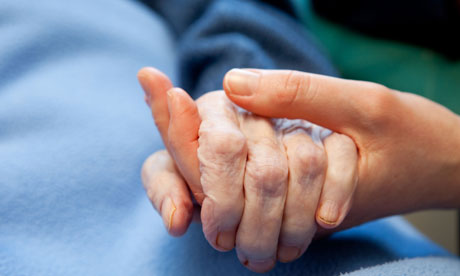
(旧盆のウウクイは先祖の霊たちに別れを告げる最後のセレモニーがある。12本の線香を焚いてまた来年ね、とことばをかけて見送るのである。暗闇の中の線香の赤色が綺麗とはじめて感じた日!不思議に思えた!)
TWITTER仲間の方のツイートを見ると心理(学)関係のつぶやきや情報が並んでいて、気になったのが以下のエッセイです。やはり自分の感性に正直に生きたいなーと思ったのでした。そして友人を含め気になる面々ともっと言葉を交わしたいとーー。
*******************************
《ナースが聞いた「死ぬ前に語られる後悔」トップ5》
もし今日が人生最後の日だったら、あなたは後悔を口にしますか。それはどのようなものですか。
人生最後の時を過ごす患者たちの緩和ケアに数年携わった、オーストラリアの Bronnie Ware さん。彼女によると、死の間際に人間はしっかり人生を振り返るのだそうです。また、患者たちが語る後悔には同じものがとても多いということですが、特に死を間近に控えた人々が口にした後悔の中で多かったものトップ5は以下のようになるそうです。
1. 「自分自身に忠実に生きれば良かった」
「他人に望まれるように」ではなく、「自分らしく生きれば良かった」という後悔。Ware さんによると、これがもっとも多いそうです。人生の終わりに、達成できなかった夢がたくさんあったことに患者たちは気づくのだそう。ああしておけばよかった、という気持ちを抱えたまま世を去らなければならないことに、人は強く無念を感じるようです。
2. 「あんなに一生懸命働かなくても良かった」
男性の多くがこの後悔をするとのこと。仕事に時間を費やしすぎず、もっと家族と一緒に過ごせば良かった、と感じるのだそうです。
3. 「もっと自分の気持ちを表す勇気を持てば良かった」
世間でうまくやっていくために感情を殺していた結果、可もなく不可もない存在で終わってしまった、という無念が最後に訪れるようです。
4. 「友人関係を続けていれば良かった」
人生最後の数週間に、人は友人の本当のありがたさに気がつくのだそうです。そして、連絡が途絶えてしまったかつての友達に想いを馳せるのだとか。もっと友達との関係を大切にしておくべきだった、という後悔を覚えるようです。
5. 「自分をもっと幸せにしてあげればよかった」
「幸福は自分で選ぶもの」だと気づいていない人がとても多い、と Ware さんは指摘します。旧習やパターンに絡めとられた人生を「快適」と思ってしまったこと。変化を無意識に恐れ「選択」を避けていた人生に気づき、悔いを抱えたまま世を去っていく人が多いようです。
以上、どれも重く響く内容でした。これを読んで、あなたは明日からどう過ごしますか。
(文=阪井亮太)
Photo:Pouch.
参照元: the guardian (http://goo.gl/WDVAR)
Top five regrets of the dying
A nurse has recorded the most common regrets of the dying, and among the top ones is 'I wish I hadn't worked so hard'. What would your biggest regret be if this was your last day of life?
- guardian.co.uk,Wednesday 1 February 2012 11.49 GMT

There was no mention of more sex or bungee jumps. A palliative nurse who has counselled the dying in their last days has revealed the most common regrets we have at the end of our lives. And among the top, from men in particular, is 'I wish I hadn't worked so hard'.
Bronnie Ware is an Australian nurse who spent several years working in palliative care, caring for patients in the last 12 weeks of their lives. She recorded their dying epiphanies in a blog called Inspiration and Chai, which gathered so much attention that she put her observations into a book called The Top Five Regrets of the Dying.
Ware writes of the phenomenal clarity of vision that people gain at the end of their lives, and how we might learn from their wisdom. "When questioned about any regrets they had or anything they would do differently," she says, "common themes surfaced again and again."
Here are the top five regrets of the dying, as witnessed by Ware:
1. I wish I'd had the courage to live a life true to myself, not the life others expected of me.
"This was the most common regret of all. When people realise that their life is almost over and look back clearly on it, it is easy to see how many dreams have gone unfulfilled. Most people had not honoured even a half of their dreams and had to die knowing that it was due to choices they had made, or not made. Health brings a freedom very few realise, until they no longer have it."
2. I wish I hadn't worked so hard.
"This came from every male patient that I nursed. They missed their children's youth and their partner's companionship. Women also spoke of this regret, but as most were from an older generation, many of the female patients had not been breadwinners. All of the men I nursed deeply regretted spending so much of their lives on the treadmill of a work existence."
3. I wish I'd had the courage to express my feelings.
"Many people suppressed their feelings in order to keep peace with others. As a result, they settled for a mediocre existence and never became who they were truly capable of becoming. Many developed illnesses relating to the bitterness and resentment they carried as a result."
4. I wish I had stayed in touch with my friends.
"Often they would not truly realise the full benefits of old friends until their dying weeks and it was not always possible to track them down. Many had become so caught up in their own lives that they had let golden friendships slip by over the years. There were many deep regrets about not giving friendships the time and effort that they deserved. Everyone misses their friends when they are dying."
5. I wish that I had let myself be happier.
"This is a surprisingly common one. Many did not realise until the end that happiness is a choice. They had stayed stuck in old patterns and habits. The so-called 'comfort' of familiarity overflowed into their emotions, as well as their physical lives. Fear of change had them pretending to others, and to their selves, that they were content, when deep within, they longed to laugh properly and have silliness in their life again."
What's your greatest regret so far, and what will you set out to achieve or change before you die?
《このguardian.co.uk,Wednesday 1 February 2012 11.49 GMTのエッセイに対して実に多くのコメントが寄せられていて、シニカルなモノから同感するもの、またサルトルや聖書の視点、ターミナルケアーの看護師に対する同意や反感を含め、その反応を読んでいた。これは興味ふかいと感じた。英文なので授業で使えるかな、などと思いながら読んでいたが、ディラン・トーマスの詩なども紹介されていて良かった。トーマスの死をここにUPしたい!》以下が、DYLAN THOMASの詩です。
******************************
2 February 2012 4:00PM
So good in fact I think it is appropriate to this article to both acknowledge Dylan Thomas and quote the whole poem:
Do not go gentle into that good night,
Old age should burn and rage at close of day;
Rage, rage against the dying of the light.
Though wise men at their end know dark is right,
Because their words had forked no lightning they
Do not go gentle into that good night.
Good men, the last wave by, crying how bright
Their frail deeds might have danced in a green bay,
Rage, rage against the dying of the light.
Wild men who caught and sang the sun in flight,
And learn, too late, they grieved it on its way,
Do not go gentle into that good night
.
Grave men, near death, who see with blinding sight
Blind eyes could blaze like meteors and be gay,
Rage, rage against the dying of the light.
And you, my father, there on the sad height,
Curse, bless me now with your fierce tears, I pray.
Do not go gentle into that good night.
Rage, rage against the dying of the light.

ウウクイの時の線香、それも綺麗だと感じた!

祖母の家の庭から撮った満月!





















大変貴重な報告、知らせて下さった方に感謝ですね。^^
「実存」という言葉に在りとし在るものの深淵さを感じます。
「自分をもっと幸せにしてあげればよかった」
これが私にはショックですね。
日本教育(内地の特性かも知れない)の良しも悪しきも、自己犠牲を美徳とする考えが強くて、サラリーマンたちを見ていても辛い・・・。
全体主義だけも違う、個人主義だけも違う、ではどこに重心を置いたらいいのか・・・。
この疑問への回答の一つの様に感じます・・・。
自分を幸せに出来なくて、人を幸せになんか出来ないんだろうと・・・。
両方バランス良く考えます。